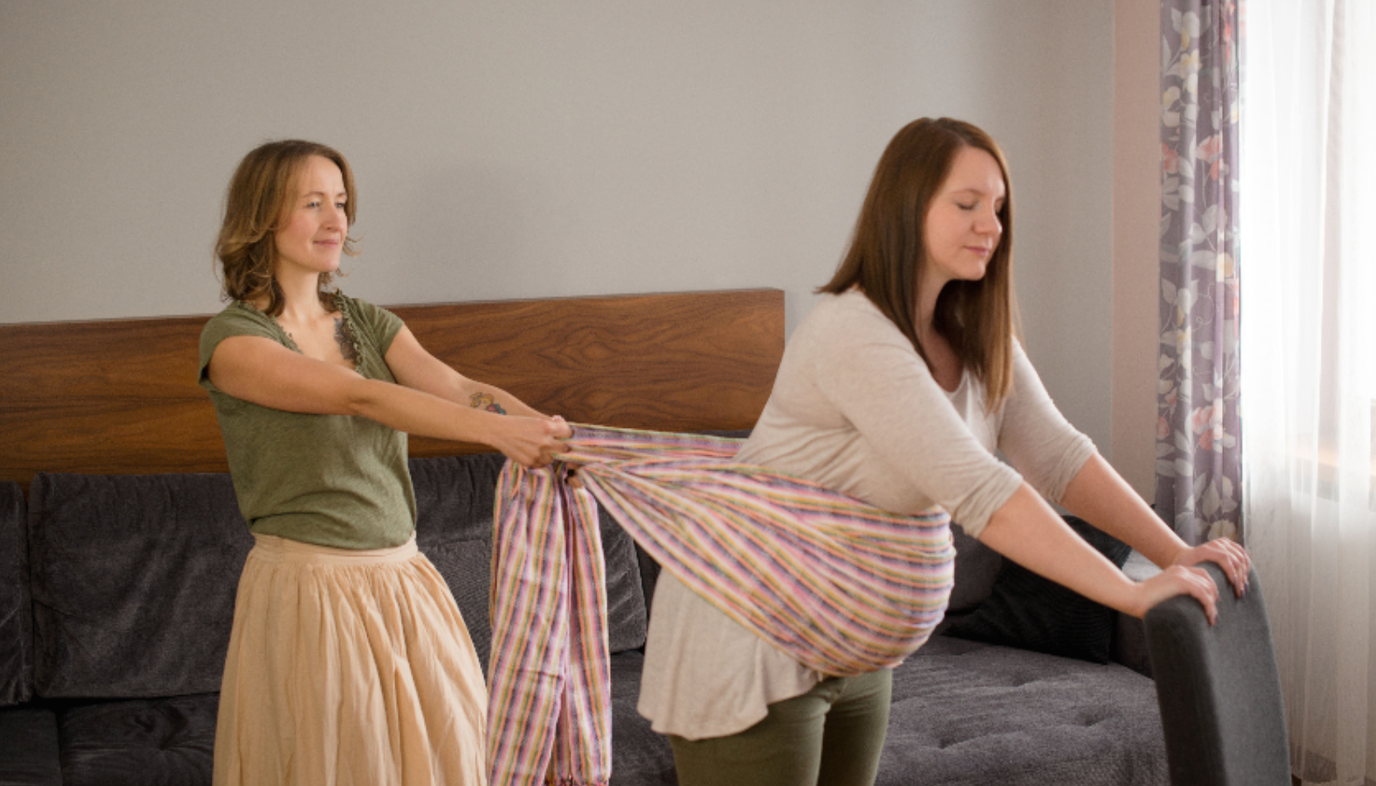
Doulas are not a new trend, but many women are just now getting to know how a Doula can support a birth. Doulas are supportive professionals who are extremely familiar with childbirth and can thus be an advocate and a supportive presence for a woman before and during the labor and delivery of a baby. As a result, many women are seeing that having a Doula may be helpful in avoiding medical interventions during a non-medicated birth.

What Doulas Are and Do
According to Evidence Based Birth, Birth Doulas are companions who provide a variety of things for a mother during labor and delivery: emotional support, information, and even physical support, when needed.
About 6% of people were working with a Doula during a birth process in 2012, a number that is rising. The general opinion of their value and assistance is rising even among those who haven't had one present at their births.
The process of becoming a Birth Doula involves learning how to give the intensive, continuous care necessary during labor and delivery, which can drag on for a very long time. Having a companion while laboring can be very positive, especially because doulas aren't employed by the hospital or another other agency: their primary interest is the agenda and goals of the birthing person.
Everything from assisting with a water birth, to offering massage, to delivering ice chips can be part of the physical tasks of a doula, but the relationship building starts before the labor and delivery. The Birth Doula will typically meet with the expectant mother and discuss her hopes for the birth, as well as any factors that may complicate that plan, so that she can be the best possible advocate should the need arise for advocacy.
Birth Doulas specifically support an expecting mother through the process of the birth, but Postpartum Doulas are helpful professionals even after the birth: they assist with lactation support, sleep consulting, and more aspects of the new mother's life.
It is also valuable to know that Doulas are not midwives or medical staff; they do not make diagnoses, catch the baby, make decisions, or perform clinical tasks. They also work collaboratively with the birthing person's partner, if a partner is present; they do not replace the partner and often are part of the conversations that help the partner assist the birthing person.
One last point: while doulas are often associated with natural birth, doulas can actually attend any kind of birth (though individual doulas may focus on a particular circumstance). Their number-one priority is the need and goal of the birthing person, and rather than "pushing" a non-medicated birth, they take their cues from their clients.

How Doulas Impact Labor and Delivery
One of the major roles that a Doula can play is that of an informed, calm advocate during the time when an expecting mother is experiencing substantial discomfort. The Doula is well-informed about the birth plan, and can be an advocate for the next-best options when the expecting mother may be too exhausted to want to participate in a conversation extensively. She can then relay, in clear and experienced ways, the options available to the mother herself.
Emotional support and information can be very helpful during a birth, to the point where women who feel frightened and uninformed may make choices differently during their birth. Doulas can remind a birthing person about her goals for the birth while also picking up on cues from both medical professionals and the birthing person that a change in circumstances is needed.
While it is hard to do controlled studies about concrete benefits of having a doula, there is no evidence that doulas have a negative impact on the birth experience or outcomes, and there is some evidence for positive impacts. These could include shorter labor, fewer negative feelings about childbirth, less pain medication, and fewer C-sections. However, every birth is different, so the benefits of having a Birth Doula are usually the more concrete benefits of having a companion and advocate.
Supportive, Knowledgeable, On Your Side
Many women who have experienced a birth without an advocate can vouch for the moments when they feel lonely, worried, or confused; they don't happen to everyone at every birth, but the idea of someone who is always there, ready to comfort and inform you, is a truly powerful one. Women have been each other's advocates in informal ways since the beginning of time, but the ability to have someone support your birthing goals throughout the labor process can be an intimate, beautiful, and birth-changing experience.
Interested in learning more about doulas? Check out DONA, the Doula Training and Doula Certification organization, where explanations of the many subtle ways in which birth and postpartum doulas support women in becoming mothers can help you figure out if a doula would be right for you in your childbirth journey.
